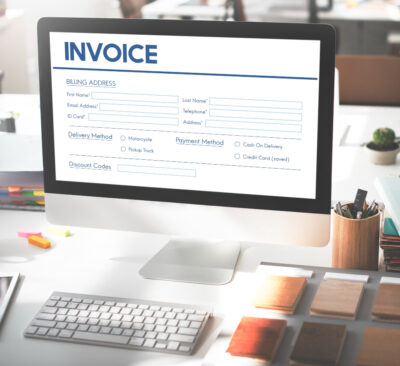One of the biggest challenges that any business faces is obtaining enough financing to pay overhead costs, make timely investments, and cover unexpected expenses, such as after an emergency.
This issue is even more pressing for retail stores, where the competition is fierce and margins are thin. Every opportunity retail store owners have to make smart investments in their business (a great bulk deal on inventory, a new marketing campaign that attracts more customers) is one they need to take. Without financing, that’s not possible.
Financing or funding for a retail store can take many different forms. Most people who start a new business use a combination of personal savings, investments or gifts from family and friends, and other forms of bootstrapping to get their venture off the ground.
Once the need for serious capital enters the picture, however, many business owners turn to some sort of mainstream financing—debt financing, equity financing—to help them make ends meet.
Here’s a rundown of the most common types of financing that retail store owners use, and how you can pursue them yourself:
Small business term loans
This form of debt financing is what you typically think of when you think of a loan: The lender fronts you a certain amount of funding, which you repay over a set period plus interest.
You can usually use a business loan to pay for any number of business needs: working capital, expansion, etc. As long as you have a plan for repaying your principal loan amount and interest, lenders will be on board.
The main differentiator in how much your loan will cost, how easy it will be to obtain, and other important factors is what kind of organization or institution is lending you the money.
Bank loans
A local or national bank is the first stop many business owners make when seeking financing, especially if they have a long-running relationship with said bank.
Bank loans offer some of the best rates and longest repayment terms on the market. If you can qualify for a bank loan or a credit union loan (more on those in a moment), you are unlikely to get a better deal for your financing.
That said, qualifying for a bank loan can be difficult for small businesses. You need to be in business for at least a couple of years, have excellent personal and business credit, and can demonstrate a history of solid revenue generation. Also, the underwriting process for bank loans is measured in weeks and months, not days.
Credit union loans
A credit union is a member-owned financial cooperative that works much in the same way a bank does, except it focuses on providing services rather than maximizing profits. You can typically join a credit union based on factors like employment, membership in a group, or geography.
If you are a credit union member and have strong business financials, applying for a loan through your union is a great option. Your rates may be even lower than what you would pay at a bank. The trade off is that credit unions—due to their mission of providing service rather than profits—aren’t as wealthy as banks and thus lack some perks and assets, such as fewer technological capabilities and branches.
Online lenders
For years, banks and credit unions were the only real options for getting a business loan. In recent years, however, a new class of alternative, online lenders has emerged.
These lenders often offer shorter term loans than you would get from a bank—repayment terms of a year or less are common, compared to five or more years from banks. Interest rates on these loans are higher as well.
What’s the upside? For one, if you have an immediate funding need (an inventory deal that may disappear in a few days, the chance to get a discount from a supplier if you pay off their invoice early), some lenders can turn around your application in as little as one business day. The qualifications are also less stringent than for bank loans.
To get started with any one of these lenders, contact a representative from the lender of your choice, or explore your online financing options with a list of lenders.
SBA loans
As mentioned above, it can be difficult for small businesses to qualify for bank loans. Banks typically want to fund large, established businesses that are less of a risk to lend to, and which need higher dollar amounts.
This is where the Small Business Administration comes in. The SBA has a loan program where it will partially guarantee bank loans to small businesses, making banks more likely to fund them.
There is no better way for small businesses to qualify for affordable bank loan products than through the SBA, especially if they are new businesses. These are difficult loans to apply for, and the process takes awhile, but the rates make it worth it.
The SBA has many loan programs that cater to specific needs. Three of the most common, and the most relevant to retail businesses, are as follows:
- 7(a) loans: The most popular SBA loan program allows borrowers to use their funds for most general business purposes.
- 504/CDC loans: This loan program is most often used for financing commercial real estate projects, such as renovation and expansion.
- Microloans: These smaller loans, capped at $50,000, are meant for new businesses and underserved business owners such as women, minorities, and veterans.
To get started, begin by gathering the necessary documentation and paperwork and find SBA-approved lenders through their website.
Business lines of credit
Another debt financing option that is prized for its flexibility: the business line of credit.
A line of credit is similar to a credit card: Lenders grant borrowers access to a pool of money, which the borrowers can draw from at any time. Each draw is repaid on its own schedule. The line can sit unused without incurring fees, and typically borrowers can continue to use it as needed for as long as the line is open.
You can also use your line of credit to finance working capital needs, fixed asset purchases, and most other business expenses.
The appeal here is clear: Lines of credit are excellent in case of emergency. Apply for one now, and use it whenever the need arises without having to go through the application process all over again. Many lenders that offer term loans—banks, online lenders—also offer LOCs.
Home equity loans
If you’re both a home owner and a business owner, you can borrow money against the value of your home in order to finance a business project. This is called a home equity loan.
On one hand, if you have a valuable asset like a home to use as collateral, the case for using it is understandable. They’re a fast and flexible form of financing, with low interest rates to boot.
The catch is that you are using a very important personal piece of property to fund your business. If anything goes wrong and you default on your loan, you may lose both your home and your business. That’s a pretty awful combination.
If you are confident in your plan and need affordable funding fast, you could do worse than a home equity loan. But understand the risks at play before you do.
Equipment financing
If you have a specific piece of equipment that you’re looking to purchase to help give your store a leg up—a new point of sale system, or computer—you should look into equipment financing.
With this form of financing, a lender sends you the exact amount of money needed to purchase the new piece of equipment. You repay the loan plus interest, and the equipment is yours.
Equipment financing is relatively easy to qualify for, and is a responsible option, for one reason: It’s a “self-secured loan,” with the equipment itself acting as collateral. If you for some reason default on your loan, the lender can seize your equipment as repayment—but that’s where the liability ends.
Business credit cards
Most people overlook business credit cards, but they are an excellent source of short-term financing in many respects. Not only does paying for a business expense with your credit card give you an extension on paying off your purchase, but you rack up points and perks that you can use to further improve your business, such as cash back or insurance on certain items.
Personal loans and savings
There is nothing that prevents you from using a personal loan to fund your business. In fact, if you are a relatively new retail store owner and you’ve yet to develop the business credit history needed for an affordable business loan—but have excellent personal credit—a personal loan is a good way to bridge business financial gaps until you do qualify.
The benefits of using a personal loan include low interest rates and the fact that it’s easier to qualify than equally affordable business loans. The downside is that your financing limits are much lower for personal loans than business loans.
Also, as mentioned above, you can use your personal savings to fund your business as well. With both loans and savings, keep in mind that once you use this money, you’re personally on the hook for what happens—unlike with certain forms of business financing.
Crowdfunding
Crowdfunding is an increasingly popular way to finance a business. The crowdfunding space is growing year by year, and there are now a multitude of different niche sites that you can use to make your case.
There are also a few different kinds of crowdfunding. Most people are familiar with reward- or donation-based crowdfunding, where individuals pledge small amounts of money in exchange for little gifts (or in some cases, just the satisfaction of donating). But there is also debt crowdfunding (where funders accrue interest on their pledge and expect to be repaid), and equity financing (where funders gain a small slice of ownership in your business in exchange for their pledge).
Some retail businesses and other for-profit companies have experienced blowback for seeking donation-based crowdfunding, and success rates aren’t very high on some platforms—so be sure to put your best foot forward when crafting the copy and media for your crowdfunding campaign.
Venture capital
It’s worth mentioning that some businesses are able to obtain equity financing from investors such as venture capitalists. Investors who provide equity financing do so expecting you to deliver a massive return on their investment, and they take partial ownership of your business as well.
This is an unlikely path for retail store owners: Less than 1% of startups receive venture capital, and those that do often have industry-disrupting business models that will help deliver a 10x return on investment for all parties. Unless your retail business is Amazon, that’s not likely to happen.
You can still receive small amounts of equity financing from local investors, who may not have the same expectations for a return as a venture capitalist. Keep in mind that giving up even a small piece of ownership of your business means you won’t have total autonomy and control from that day forward.
Giving up total ownership for a small capital need probably isn’t worth it. If your financing needs are small (under $1 million) stick with debt financing.
***
The decision to pursue financing should never be taken lightly. You’ll need a plan to repay your debt, or an understanding of how to share responsibility for your business once you take on equity financing. Whatever you decide, the way you run your business will change—hopefully, for the better—going forward.










